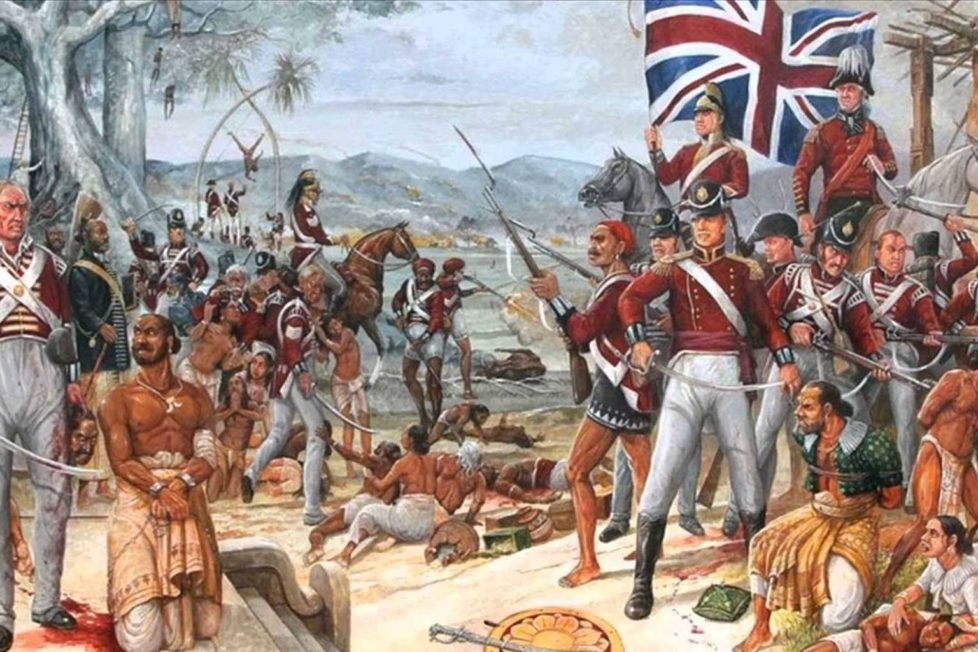Englishmen boasted “spared no one”, executed 6000 Indians post 1857 revolt: Heart wrenching incidents out of The White Sahibs in India


The popular book White Sahibs in India written by Reginald Reynolds, based on the history of Britishers in India makes several heartbreaking accusations about Britishers oppressing and harassing Indians while allowing them to use our resources and generate money for themselves.
Roman Rye, in his book released in 1857, labeled Indians as “rascals not worth regarding” who speak “a dirty gibberish. And the company’s service entails “kicking and cutting down” these crooks and stealing their rupees (silver money).”
During the 1857 uprising in Cawnpore, the British garrison surrendered to mutineers and was promised safe passage to Allahabad. However, the boats they boarded for the expedition were set ablaze. Only one boat was able to escape, and only four men were rescued. Mr. Dodwell affirms the following in this incident:
“Death was accepted punishment for the mutiny. …..Wholesale execution is an appropriate punishment for wholesale mutiny… The blot on British conduct does not lie in the military punishments which were excited but in the conduct of several officers who took bloody revenge upon guilty and innocent alike. Indiscriminate executions had accompanied the suppression of the mutinies at the Benaras and Allahabad. They help to explain the pitiless slaughter of Cawnpore, and both miserably prove how cruel men are made by fear.”
On the 17th of July, Havelock led a British force into Cawnpore. “Like Edwards and Nicholson, he was a devoted evangelical believing that his cause was both a religious and a national cause.”
Cawnpore’s tragedy had been avenged. All mutineers were executed, but some were treated as further refinements of civilized justice, being forced “to lick the bloodstains from an appropriate area, if necessary with the whip.” “The guilty are to be immediately hanged after properly cleaning up his portion,” the official order said.
The power of prayer was strained to its utmost in England. Special intercessions were added to Church liturgies. The prayers were done to ” defend our countrymen from the malice and treachery of the sons of violence (Indians) who have risen against them; rebuke the madness of the people and stay the hand of the destroyer… Teach the natives of British India to prize the benefits which Thy good providence has given them through the supremacy of this Christian land…”
Later British succeeded in winning over Rani of Jhansi. Lucknow was relieved, and even though the ousted Rani of Jhansi and her commander Tantia Topi fought for a year. Tantia Topi was arrested and executed later in 1859 while the Queen died on the battlefield in 1858.
The victors’ vengeance is still remembered in India today. “On one occasion, some young lads were tried and sentenced to death for flaunting rebel colors and going around beating tomtoms, ostensibly for pleasure.”
Women and children were victimized by the elderly and powerless: “They were not intentionally hanged, but were burned to death in their communities.”
“We spared no one,” Englishmen boasted, and “peppering away at niggers” was a pleasurable sport “enjoyed brilliantly.” Approximately 6,000 Indians were summarily executed over three months, according to Kaye and Malleson. In addition to individuals who were slain without going through the formalities of a trial and for whom no statistics are available.
DISCLAIMER: The author is solely responsible for the views expressed in this article. The author carries the responsibility for citing and/or licensing of images utilized within the text.
